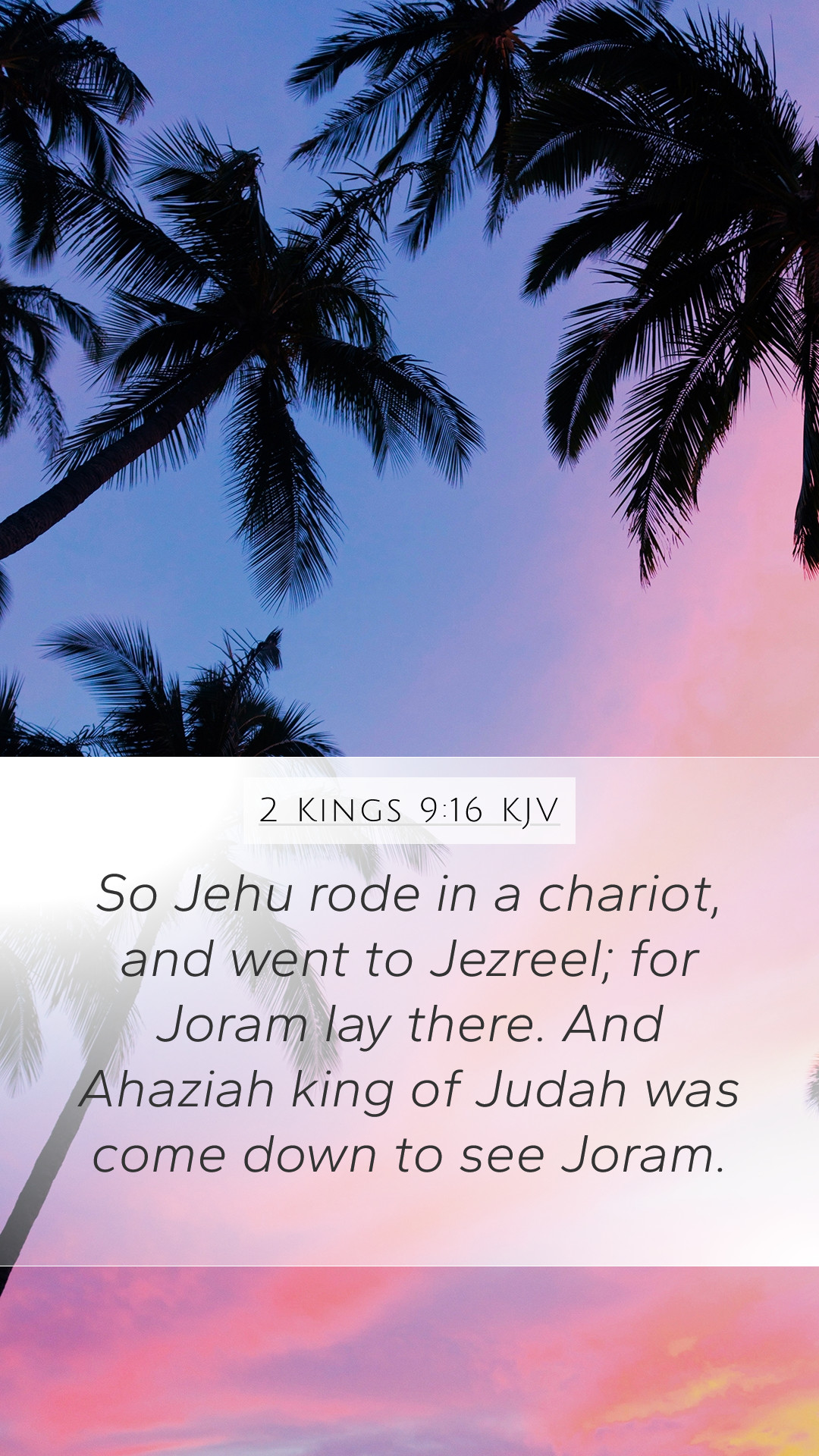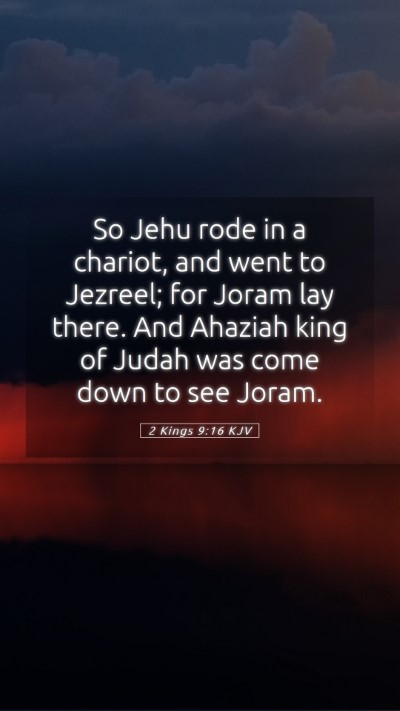Understanding 2 Kings 9:16
Bible Verse: 2 Kings 9:16 - "So Jehu rode in a chariot and went to Jezreel, for Joram lay there. And Ahaziah king of Judah had come down to visit Joram."
Overview
This verse marks a pivotal moment in the narrative of the kings of Israel and Judah, highlighting the fulfillment of prophetic words and the dramatic shifts in leadership.
Interpretation and Commentary
The following sections provide insights into the meaning and significance of this scripture based on public domain commentaries, including those from Matthew Henry, Albert Barnes, and Adam Clarke.
Historical Context
Matthew Henry emphasizes the importance of understanding the historical setting. This verse occurs during a tumultuous period in Israel's history, characterized by idolatry and wicked leadership under Joram and Jezebel. Jehu's rise to power, as ordained by God through the prophet Elisha, is crucial for the restoration of true worship among the Israelites.
- Leadership Transition: The mention of Jehu riding into Jezreel signifies a significant power shift. Jehu was anointed to overthrow Joram, which underscores God's judgment on the house of Ahab.
- Prophecy Fulfillment: Albert Barnes notes that Jehu's actions were in direct response to divine messages. His coming to Jezreel fulfills Elisha's prophecy, showcasing the sovereignty of God over the affairs of nations.
Character Analysis
This verse introduces key figures: Jehu, Joram, and Ahaziah. Adam Clarke provides a deeper character analysis:
- Jehu: A warrior chosen by God, Jehu represents divine justice. His bold actions reflect God's intent to cleanse Israel from idolatry.
- Joram: The current king of Israel, Joram symbolizes the culmination of Ahab's legacy—one rooted in disobedience and rebellion against God's commandments.
- Ahaziah: The king of Judah, visiting Joram, signifies the interconnectedness of the two kingdoms. His involvement in Joram's fate illustrates the consequences of alliances formed through ungodly people.
Thematic Insights
This narrative illustrates several profound themes relevant to the study of Scripture:
- Divine Sovereignty: The verse reflects God's active role in political affairs and the fulfillment of His promises.
- Judgment and Restoration: Jehu’s mission is both a judgment against sin and a restoration of true worship.
- The Importance of Obedience: The fates of Joram and Ahaziah highlight the dangers of disobedience to God's commands.
Application for Today
For modern readers, this verse serves as a powerful reminder of God's control over the events of history and the importance of righteous leadership. Matthew Henry encourages readers to reflect on their leaders' character and decisions, seeking those who align with God’s will.
In the context of Bible study groups, discussing this passage can lead to deeper conversations about the responsibilities of leaders today and how individuals can influence their communities towards righteousness.
Cross References
This verse connects with several significant Bible passages:
- 1 Kings 19:16: The anointing of Jehu as part of God’s plan for Israel.
- 2 Kings 10:1-14: The further actions of Jehu leading to the destruction of Ahab’s lineage.
- 2 Chronicles 22:1-9: The intertwining fates of the kings of Judah and Israel.
Conclusion
2 Kings 9:16 is more than a historical account; it is a rich source for Bible verse meanings, Bible verse interpretations, and Scripture analysis. Understanding this verse within its context allows believers to appreciate God's blueprint for justice and righteousness.


